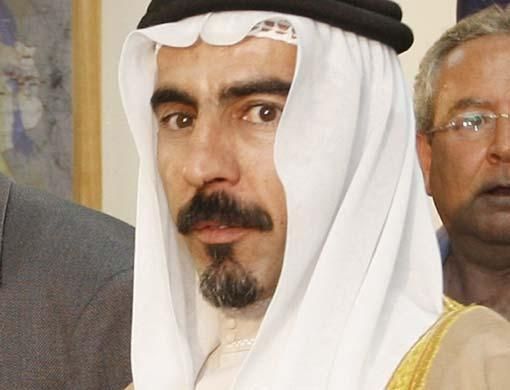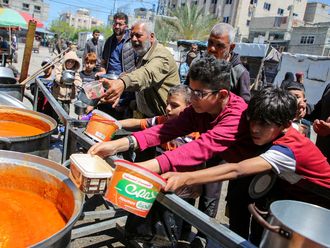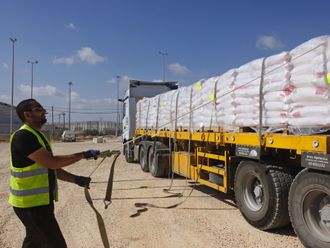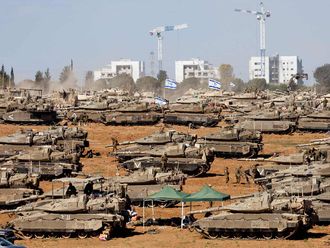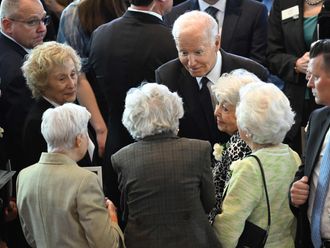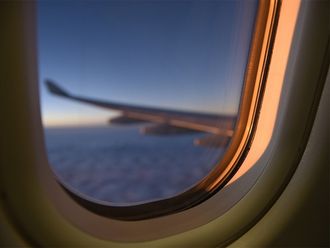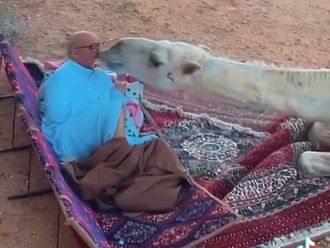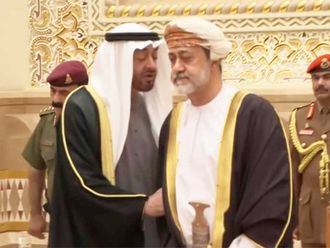Baghdad: Abdul Sattar Abu Risha looked more like an Arabian prince than a desert warrior when he posed for photographers shaking hands with President George W. Bush.
The tribal chief from Iraq's Anbar province, who was killed yesterday along with two of his bodyguards in a roadside bomb, wore an immaculate gold-rimmed robe and sported a meticulously groomed goatee and a heavy mustache.
Abu Risha's meteoric rise from a virtual unknown to a leader celebrated as both hero and saviour by none other than the US president had Hollywood blockbuster qualities.
But, in reality, his story was far from fiction or myth.
The journey that led to his landmark September 3 meeting with Bush in Anbar began a year ago this month when the 37-year-old Abu Risha decided enough was enough and rallied other tribes behind him to fight Al Qaida militants in his province.
Once the stronghold of the Sunni Arab insurgency, Anbar now is cited as a model for the rest of Iraq. Violence abated after Abu Risha and other Sunni tribal leaders and former insurgents broke with Al Qaida and teamed up with US troops to hunt down extremists.
"A year ago the province was assessed lost politically," General David Petraeus, the top US commander in Iraq, told a congressional hearing on Monday. "Today, it is a model of what happens when local leaders and citizens decide to oppose Al Qaida and reject its Taliban-like ideology." Monthly attack levels fell sharply, he said, from 1,350 in October last year to a little more than 200 last month.
The dramatic improvement in security bolstered Abu Risha's status and the reconstruction funds that have begun pouring into Anbar reinforced his image as the region's most popular son.
"We did not talk to Bush in the name of Anbar, but in the name of Iraq," the slender Abu Risha said in a television interview the day after his meeting with the US leader.
"We told him we want to be one nation under one tent," he said.
Abu Risha has had a personal bone to grind with Al Qaida militants since they killed four of his siblings for doing business with the US military in Anbar. Fearing for his life, he fled the country, returning last year to settle back in Anbar.
"We fought with our own weapons. I myself fought Al Qaida with my own funds," Abu Risha, who runs a construction and import-export family business with offices in Jordan and a Gulf country, was quoted by the Wall Street Journal as saying this week.


